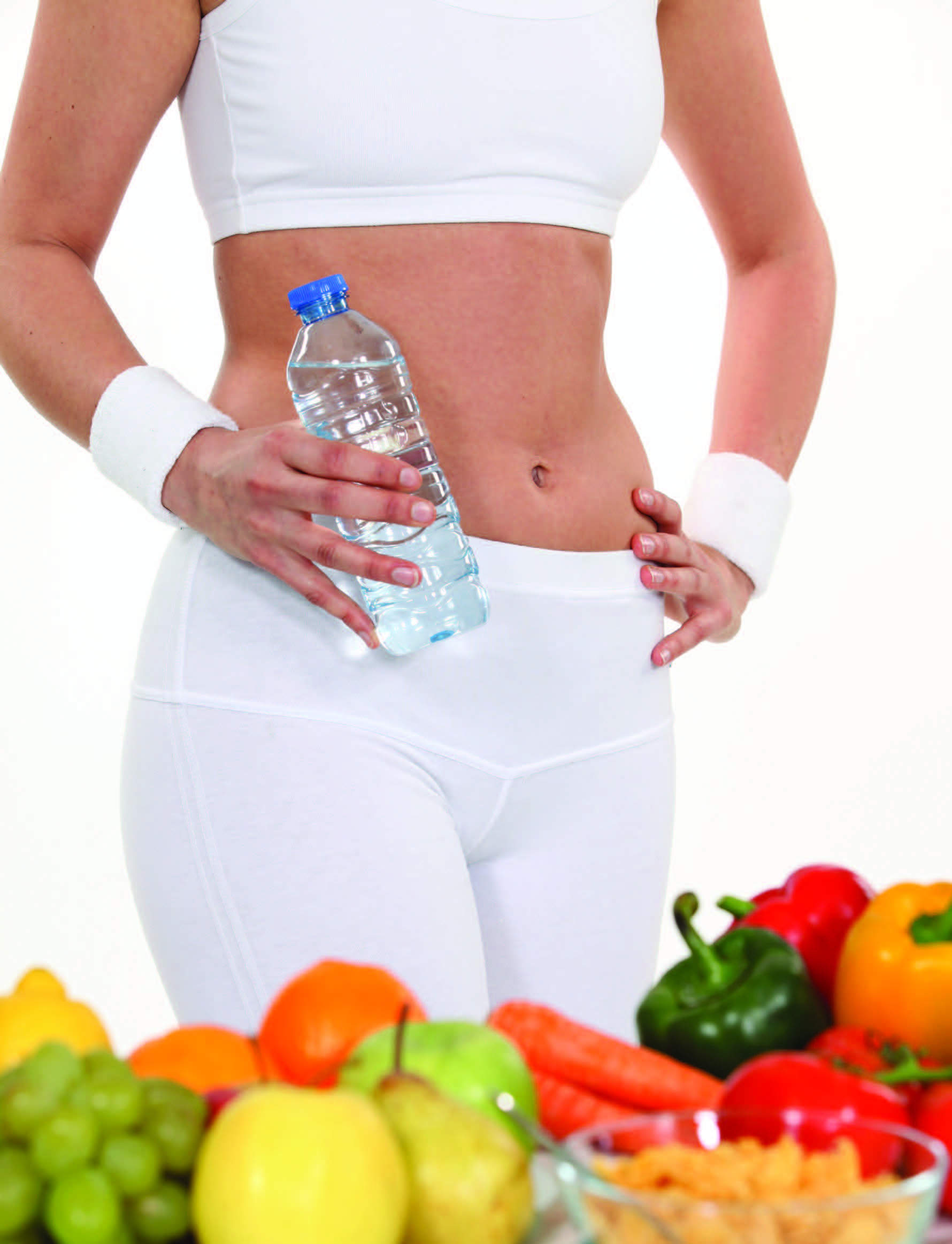
Eat asparagus
It’s rich in potassium, which helps regulate the fluid balance in your body, keeping bloat at bay. High-potassium foods include bananas, cantaloupe, mangoes, spinach, tomatoes and nuts. But asparagus also contains an amino acid called asparagine that acts as a diuretic to flush excess liquid out of your system.
Slow down!
Eat slowly and chew carefully. This will stimulate all your digestive juices. When food isn’t broken down sufficiently, it can ferment in the gut, causing bloating. Also, never eat on the run or while standing up. Sit down, but straighten your spine – slumping makes it harder for blood to reach your digestive organs. Avoid large or late-night meals. Go for a walk after dinner to help digestion.
No drinking while eating
Leave a 20-minute gap – before and after – between eating and drinking fluids. Liquid can dilute the stomach acid needed to break down food. This can lead to poorly digested food fermenting and causing bloating. Many herbal teas can help. Try fennel or spearmint.
Eat real bread
Most (95 per cent) commercial breads are products of industrial process. Many people are sensitive to the enzymes and flour-improving agents used in these kinds of bread. Unfortunately, these don’t have to be listed because they are classified as ‘processing aids’. If you suffer bloating after eating bread, opt for organic, artisan or sourdough bread.
Beware of artificial sugar
Some people have difficulty digesting artificial sweeteners (especially sorbitol, found in many sugar-free sweets and gums), which can cause gas and diarrhoea. Because sorbitol isn’t actually digested, it remains in your digestive system where bacteria effectively ‘picnic’ on it. One waste product of this feeding frenzy is hydrogen gas, which causes flatulence, stomach aches and bloating.
No fizzy drinks
Carbonated drinks (including diet ones) can cause gas to get trapped in your stomach. The fizz is due to carbon dioxide gas bubbled into the drink. As an alternative, drink water flavoured with lemon, lime, or cucumber. If you’re feeling gassy and bloated, avoid tea and coffee as caffeine can cause indigestion. Opt for ginger, peppermint and fennel teas.
Watch your salt intake
Too much salt – often contained in highly processed foods and ready meals – adds extra sodium to body fluids, stalling the mechanism that pushes water out of your cells. Consequently, the cells plump up with water, causing the stomach to feel full. Most adults need 1,600mg of sodium a day – the equivalent of about 4 grams of salt, less than a level teaspoon. Replace salt in cooking with pepper, herbs, lemon and balsamic vinegar.
Try probiotics
Taking a probiotic supplement can reduce bloating. Choose a supplement over probiotic drinks or yoghurts as these often contain a lot of sugar. Look for one that contains at least 5-10 billion active organisms and includes lactobacillus and bifidobacterium cultures. Include probiotic foods in your diet to help feed the good bacteria in your gut. Try Jerusalem artichoke, chicory root, garlic, leek, onions, sauerkraut, asparagus, banana, oats, apples and barley.
Don’t have fruit for dessert
When eaten at the end of a meal, fruit can cause bloating. It’s best eaten separately. Certain fruits have a beneficial effect on the gut. Fresh papaya and pineapple have natural digestive enzymes – papain and bromelain, respectively – that aid digestion and alleviate wind.
Try a little TLC
Aromatherapy oils can counter water retention. It is particularly useful for ‘bloated’ conditions and can be added to a warm bath (approximately 10 drops).
What to avoid
– Sugar (check labels for added sugars) – Yeast and anything containing it – bread, beer, wine – Malted products, such as those found in breakfast cereals – Alcohol, vinegar, especially balsamic vinegar, pickled onions and gherkins, soy sauce – All fruits, except green apples, dried fruits, fruit juices – Moulds, such as mushrooms, hard and blue cheese
What to eat
– All grains, including rice and quinoa, and unsalted fresh nuts – Fish and meat, including smoked or cured, but not salami – Rice, oat cakes and eggs – Puffed rice, oats and wholegrain wheat cereals that have no added malt – Natural bio yoghurt, soft cheese – Fresh vegetables, regular and sweet potatoes, tomatoes





Be the first to comment